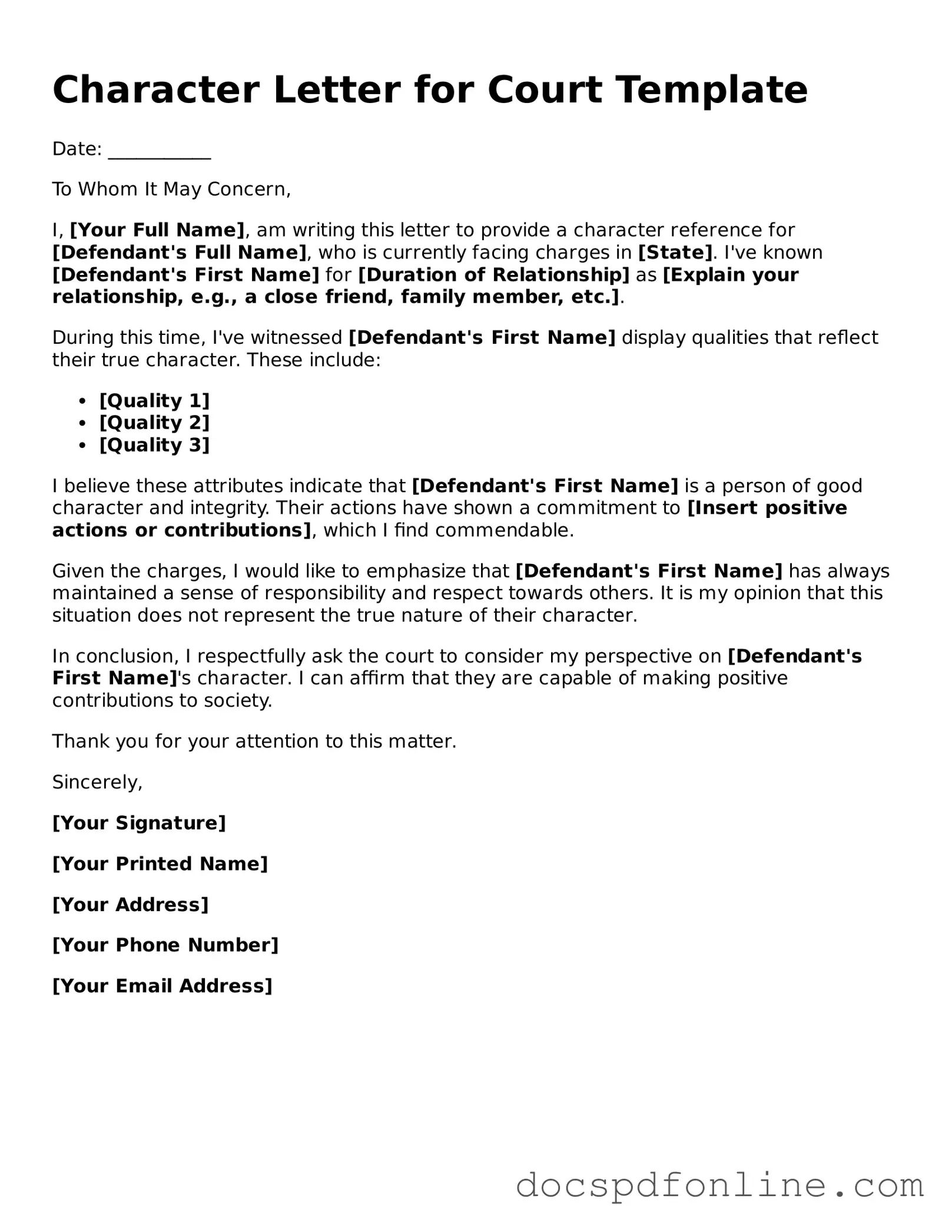Attorney-Approved Character Letter for Court Document
The Character Letter for Court form is a document that individuals can submit to provide the court with insights into a person's character and behavior. This letter can support a defendant or someone involved in legal proceedings by highlighting positive traits and contributions to the community. It serves as a personal testament that may influence the court's decision.
Launch Editor Now

Attorney-Approved Character Letter for Court Document
Launch Editor Now
Save time — finish this form fast
Finish Character Letter for Court online — edit, save, download made easy.
Launch Editor Now
or
↓ PDF File
